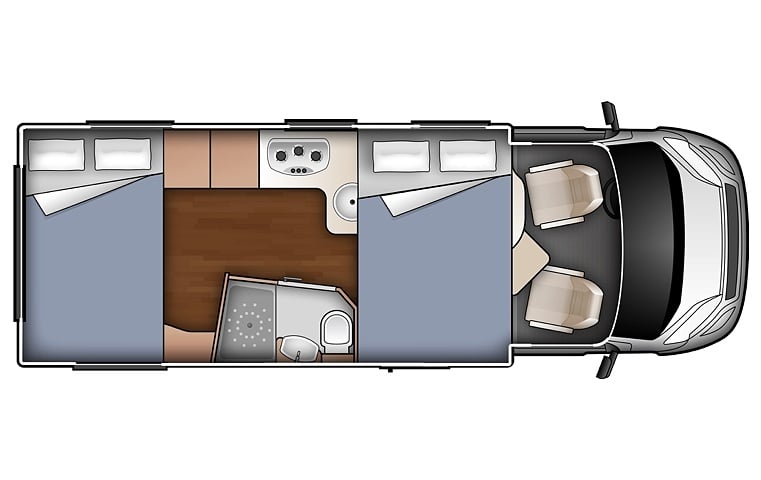With so many wonderful sites packed into two smallish islands, New Zealand is the ultimate destination for a road trip. Whether you’ve got a few days or a few months, you can experience bustling cities and pristine beaches all within a few hours of each other.
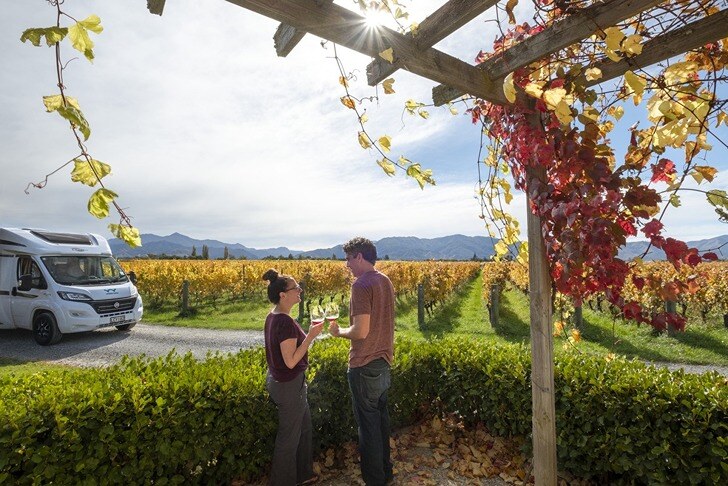
New Zealand has a good roading network and rental cars and motorhomes are easy to find so -drive holidays are popular. But which will be the best option for your NZ self-drive tour: an RV rental or a hotel and car?
Both are great options but choosing between them really comes down to your travel likes and dislikes and the type of holiday you’re planning. In this article, we discuss a number of factors that travellers consider when tossing up between an RV or car rental for their road trip. We cover flexibility and spontaneity, looking for adventure, eating in or eating out, making the most of your living space, and costs.
|
Shorter Trips
RV rentals are suitable for a road trip covering multiple locations over five days or more. If you plan to stay in one city and explore a small area from there or you only have enough time for a short break, a rental car and hotel will usually be the best option. |
What to consider when choosing between an RV or a hotel
Firm itinerary or go where the feeling takes you?
Some of us prefer certainty and some of us are a little more easy going when it comes to holidays. Most people who choose to holiday in an RV do so because they like the idea of exploring. An RV is the perfect way to discover new places or get to know better places you’ve been to before. The real advantage of RV touring is the flexibility you have. Unless you’re travelling in the peak season or visiting a popular tourist destination like Queenstown, you don’t need a fixed itinerary. If the weather is better on the West Coast, you can head that way. If you find a conservation area or small town that you fall in love with, you can stay a bit longer. Touring by RV lets you be spontaneous as you rarely need to book motorhome campsites in advance in New Zealand.
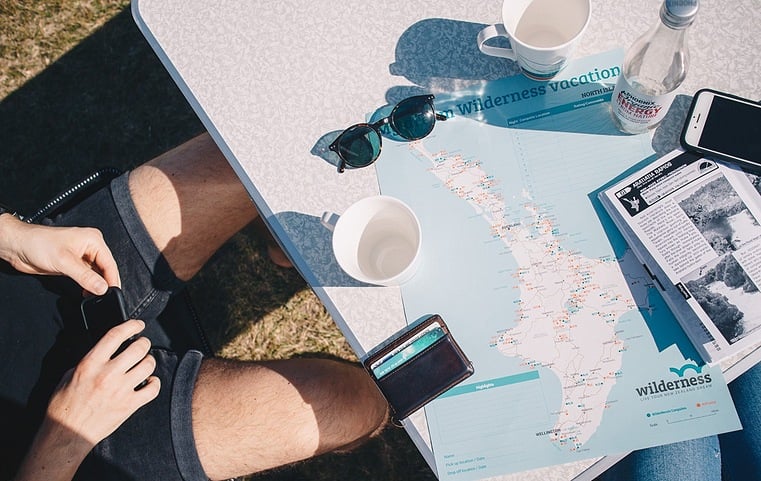
If the thought of not having a firm itinerary with pre-booked accommodation causes you anxiety, then a rental car and hotel option might be better suited to your travel style. You will need to do all your planning before the trip but you’ll have the peace of mind that you have a room booked for every night.
Take a look at our ten tips for planning your New Zealand campervan adventure.
Stick to the beaten path or take the road less travelled?
An RV road trip is ideal for the more adventurous traveller. Do you dream of parking up in an ancient forest and then waking to the sound of native birds? Or stopping on the edge of a long sandy bay and watching the sunrise? Do you yearn for the chance to ride the first wave at daybreak on a lonely beach? A motorhome is your ticket to getting up close and personal with nature. There are hundreds of scenic campsites at locations across New Zealand. Some are less than an hour from the city and others are quite remote. Some you may have to share with others but some you may get all to yourself.
New Zealand hotels are typically located closer to urban centres. If you prefer being close to restaurants and shops, if the sights and sounds of a nightclub excite you more than birdsong at sunset, then a car and hotel may be the best holiday option for you.
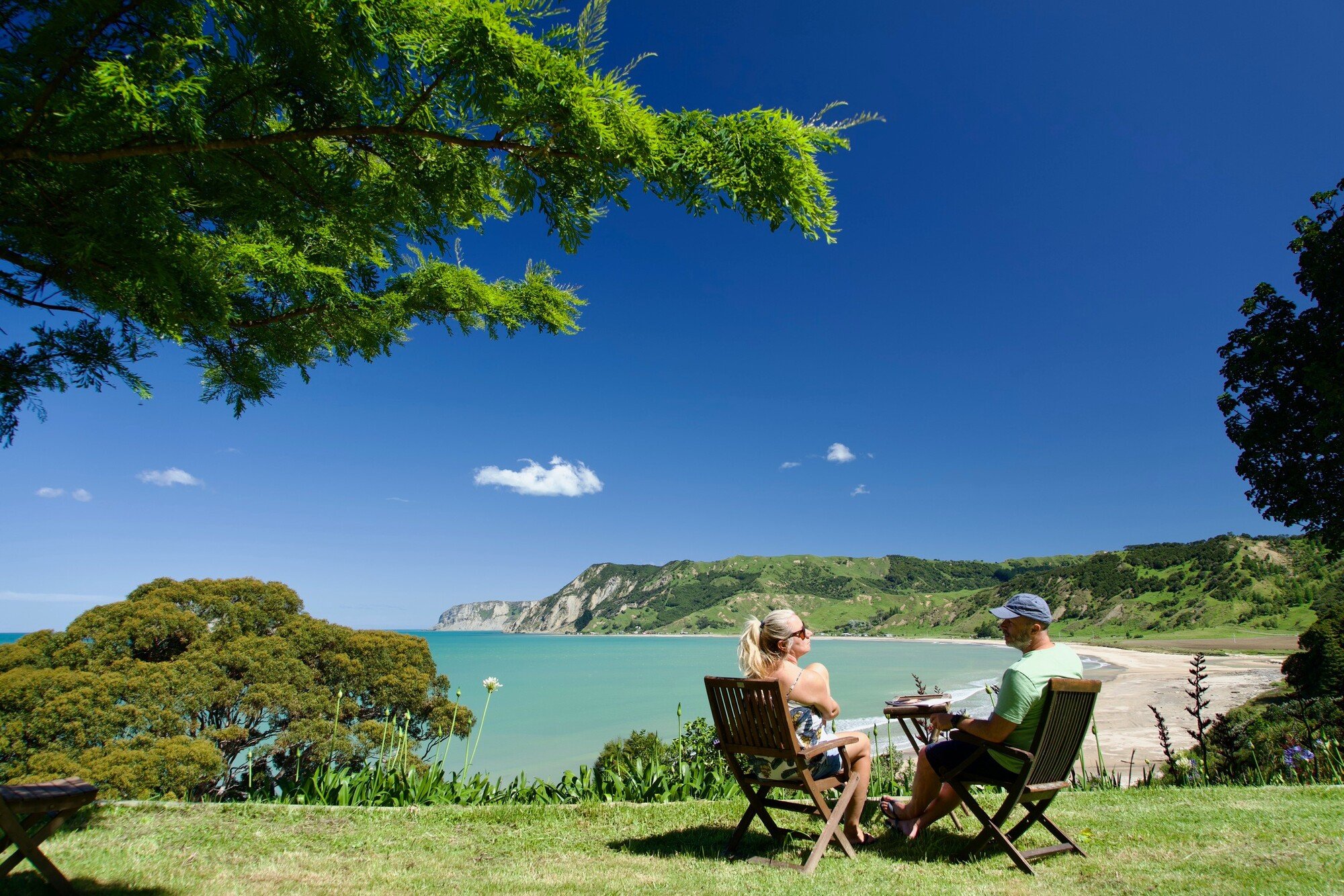
Fully catered or catered by you?
If escaping from the mundaneness of cooking and making beds is an important aspect of your perfect holiday, a car and hotel holiday may be most suited to you. New Zealand has a vast array of one to five star hotels that cater for all, even the most discerning traveller. Most five star hotels are located in the main centres and in tourist destinations, but a few are dotted in scenic locations in other parts of the country. Some of the most luxurious hotels and resorts are on golf courses in jaw dropping settings near the coast or in the mountains.
If you are planning a car and hotel holiday, you may find that eating out most nights is the best option. While you can cook your own meals in most motels or holiday apartments, it’s not as straightforward travelling by car as you won’t have a fridge to store your food in when you travel between hotels. You’ll find world class restaurants in the main cities and a selection of good eateries in many smaller cities. But restaurants are limited in smaller towns and more remote areas so you may have little or no choice if you stray off the beaten track.
An RV holiday is the ultimate in self-catering holidays. If you don’t mind cooking on your trip, you won’t be limited to only eating where you can find a restaurant. You can eat out when you’re in a city or bigger town and whip yourself up a gourmet meal in your onboard kitchen when you’re out in the wilderness. You’ll find lots of interesting ingredients along the way like fresh fruit in Hawke’s Bay, crayfish in Kaikoura, fresh fish and shellfish in Nelson and Marlborough, vegetables in Ohakune, and artisan cheeses in Oamaru. Serve up your locally inspired menu and enjoy it in nature as you watch the sunset.
Spread out or keep it cosy?
There’s no getting away from the fact that the living space in a rental RV will be smaller than in all but the tiniest of hotel rooms. Most New Zealand hotels have a main room that doubles as a lounge and bedroom plus a separate bathroom. If your budget can stretch to an apartment or family suite, you can spread out across several rooms which gives you more options and more privacy.
While an RV has been described as a hotel room on wheels, it’s definitely cosier than your average hotel room. However, if you know what to look for, you can find a motorhome with ample space too. A standard rental RV starts at about 6 metres long for a compact vehicle and goes to about 7.5 metres for a full-sized one. Apart from the overall vehicle size, the other factor that determines the spaciousness of a motorhome is the interior layout - in particular, how the lounge and beds are placed. A common myth with rental RVs is that an RV with more berths will be more spacious. The reality is that most 6-berth RVs are the same length or shorter than a 4-berth RV - they just have two more berths.
The most spacious rental motorhome available in New Zealand is The Suite. This German designed motorhome has two lounges - one up front and another in the rear separated by an internal door. The secret is that the beds tuck away into the ceiling when not in use. At the end of the day, just lower the beds with the flick of a switch and climb into your nest! 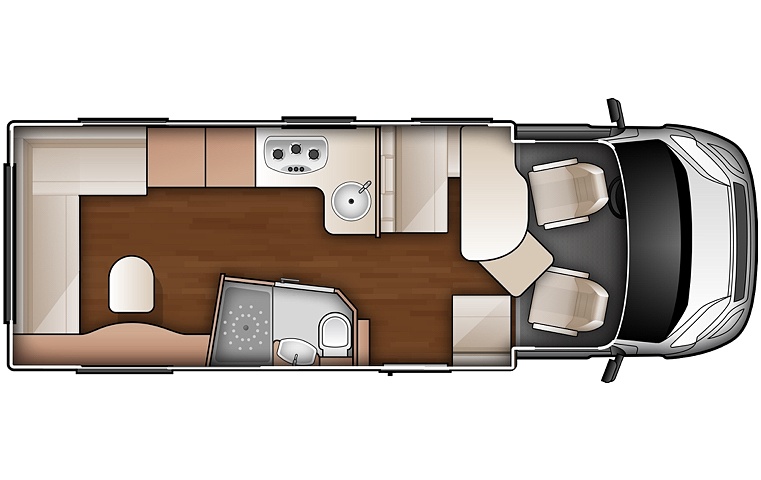
It’s important to note that there’s a trade-off between vehicle size and drivability. A 6 metre motorhome will have less living space than a 7.5 metre but it will be easier to drive on narrow winding roads and easier to park in towns and cities.
Getting a good night’s sleep
No matter how inspiring your location is or how attentive the hotel staff are, if your bed is uncomfortable your holiday will be memorable for all the wrong reasons. You can expect a quality bed in any reputable hotel and feel confident of a good night’s sleep. But not every RV is created equal when it comes to beds.
In order to maximise living space, the lounge seating doubles as a bed in most rental RVs. This dual purpose design has one major drawback - lounges don’t make comfortable beds. The best way to get a good night’s sleep in a rental RV is to opt for one with permanent beds with hotel quality mattresses. Not only is a permanent bed more comfortable than a lounge that converts to a bed, it’s a whole lot more convenient. Instead of a nightly ritual of shuffling the lounge cushions into the sleep configuration, you just jump into bed!
When it comes to a touring holiday, a comfortable RV bed has one distinctive advantage over a comfortable hotel bed - you get to sleep in the same bed every night. There’s no need to adjust to a different bed in every location, in an RV your bed travels with you.
Learn more through our guide to sleeping comfortably in a campervan.
Feeling at home on holiday
In an RV, it’s not just your bed that travels with you from location to location - so does your gear. On an RV holiday, you only need to unpack once - on day one. This is something especially important when travelling with kids. Small children find it easier to adjust to lots of change while on holiday if they have some familiarity in their environment. That’s why an RV holiday is very popular with families, especially adventurous ones who are looking for unique experiences to share with their kids.
While a typical rental RV doesn’t have as much storage space as a hotel room, if you pack carefully it’s surprising how you can make it work. If you only travel with rigid suitcases, you’ll find many rental RVs won’t have big enough storage compartments to fit them. Soft bags that can be folded down work best in an RV.
Most rental RVs have ample interior storage and often storage lockers accessible from the exterior. Some motorhomes have external storage lockers big enough to take bulky items like surfboards and golf clubs. Check the RV specifications for storage capacity.
Which option costs less?
While budget is an important factor in holiday planning, it’s not the most important one when choosing between a car and hotel versus an RV - for most people. Touring with a car and staying in hotels is quite a different experience than touring by RV, so by now you should have a sense of which type of holiday would best suit you.
We’ve put together the following section to help you get an indication of the factors that will influence how much your car and hotel holiday will cost you compared with an RV holiday. We have looked at transport and accommodation costs, how the number of people in your group impacts on costs, the timing and duration of your holiday, and other costs including food. For ease of comparison, we will consider how mid-range motorhome rentals stack up against mid-range car rental and hotels.
Transport costs
Transport costs can take up a large part of any holiday budget when you’re not driving your own car. You need to factor in daily rental rates, liability reduction options (LRO) and fuel. Daily rental rates for both motorhomes and cars vary substantially depending on the time of year but the extra rental costs stay much the same at any time of year. Once you've done your research and chosen a preferred rental operator, check with the operator directly as most will offer the same or better rates than an online travel agent or aggregator website. Hiring directly from the operator will also be less hassle if you have any changes or issues with the rental.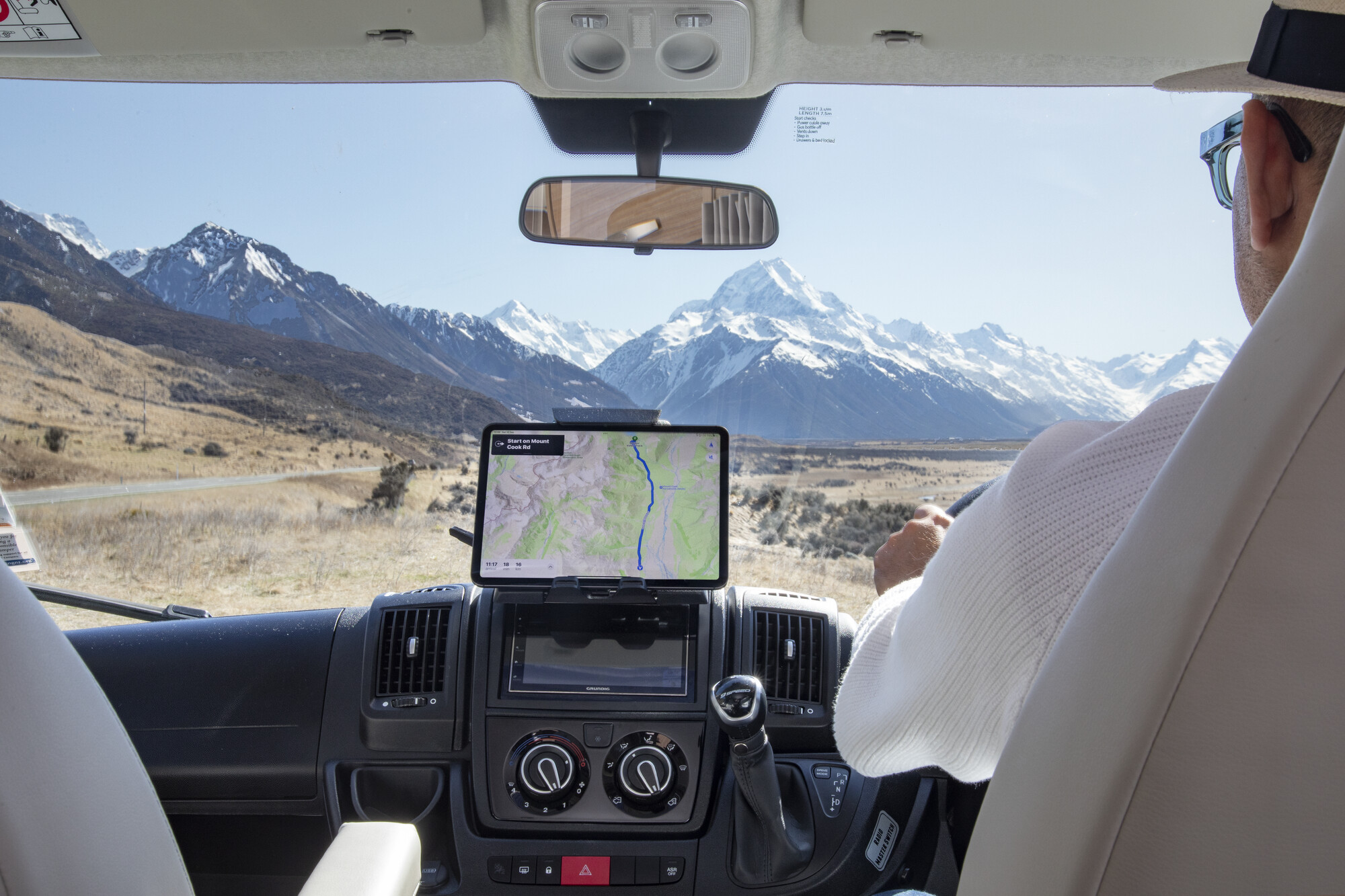
After the daily rental cost of your vehicle, the next biggest transport cost will be fuel. Most rental RVs in New Zealand run on diesel and most rental cars run on petrol. While diesel is less expensive than petrol, a car is more fuel efficient than an RV or motorhome. The result is that it will cost you about the same for fuel for every kilometre travelled in a mid size motorhome versus a mid size car. The only additional cost you need to factor in for a motorhome in terms of fuel is the cost of Road User Charges (RUC) if this isn't covered in your hire. RUCs are usually payable at the end of your hire and are calculated based on the total distance travelled.
Many rental car operators will charge extra for additional drivers and some will charge for any kilometres you travel over their maximum limits. Additional drivers and unlimited kilometres are usually included in the daily rate for rental RVs. Before deciding on a rental operator, it pays to check the fine print for any other extra fees and charges like cleaning fees, airport location fees, and public holiday surcharges.
All rental cars and RVs come with comprehensive insurance which covers you for accidental damage and personal liability. If the vehicle is damaged, you’re responsible for the excess or deductible. For rental cars, this is usually between $2500 and $3500. For an RV rental, the excess is usually between $5000 and $7500 depending on the value of the RV. You can purchase a liability reduction option (LRO) which reduces the amount of excess or deductible you need to pay.
If you plan to go between the North Island and South Island, you will need to factor in the cost of the ferry. You can take your motorhome on the ferry for about $350 one way including the driver. Most rental car companies do not permit their vehicles to go on the interisland ferries. Instead, you will have to drop your car off before boarding the ferry as a passenger ($60 one way) and then pick up another rental car on the other side. While you can make savings on the ferry crossing when using a rental car rather than an RV, it comes at the cost of convenience. The time spent dropping off and picking up your car will cut into your precious holiday time.
Accommodation costs
Just like the cost of rental vehicles, accommodation costs vary widely depending on the quality, service level, location and time of year you’re travelling. However, a campsite will usually cost significantly less than a hotel.
New Zealand has numerous options for RV camping. However, contrary to the myth, you can’t freedom camp anywhere you like. In fact, the options available to smaller campervans that don’t have an onboard toilet and water storage have reduced significantly. Most districts limit freedom camping to only a few areas and require the RV to be certified self-contained.
While it’s possible to avoid commercial and pay-to-stay campsites if you rent a self-contained motorhome, you should budget for paid campsites for at least some of your holiday. Camping options include commercial campgrounds and holiday parks, camping on private land and Department of Conservation (DOC) sites. Each option has a different level of amenities. Commercial campsites and holiday resorts have the most facilities but cost more. Campsites on private land vary widely depending on the location. Conservation sites usually have basic amenities and are some of the lowest cost pay-to-stay campsites.
Indicative costs of different motorhome camping options (NZD), as at September 2021
|
Low* |
High** | |
|---|---|---|
| Freedom camping*** | Free | Free |
| Commercial campgrounds / holiday parks | 35 | 60 |
| Camping on private land | 10 | 60 |
| Department of Conservation (DOC) campsites | Free | 30 |
*Low = For 2 people, off-season, in locations other than main tourist areas.
**High = For 2 people, in peak travel season, in main tourist areas.
***In designated freedom camping sites.
Learn more about the freedom of a long term motorhome hire in New Zealand.
Number of people travelling
The size of your travel party can also impact whether an RV or a car and hotel holiday is less expensive. You can pick up an inexpensive compact car for two but a people mover or SUV will cost substantially more. Compact motorhomes are also less expensive than a 4-berth or 6-berth but the price difference is often not as great in the rental car market.
The cost of hotel accommodation really adds up if you’re travelling as a family of four or more as most hotels don’t cater for families. In this case, you’ll need a family suite or apartment or two hotel rooms. You may have to pay an extra per person charge for any rooms with more than two people. Conversely, most camping options, other than holiday parks, don't charge extra for RVs with more than two people.
If you choose the hotel option, check whether you have to pay extra for parking. Car parking is usually an addition for city hotels.
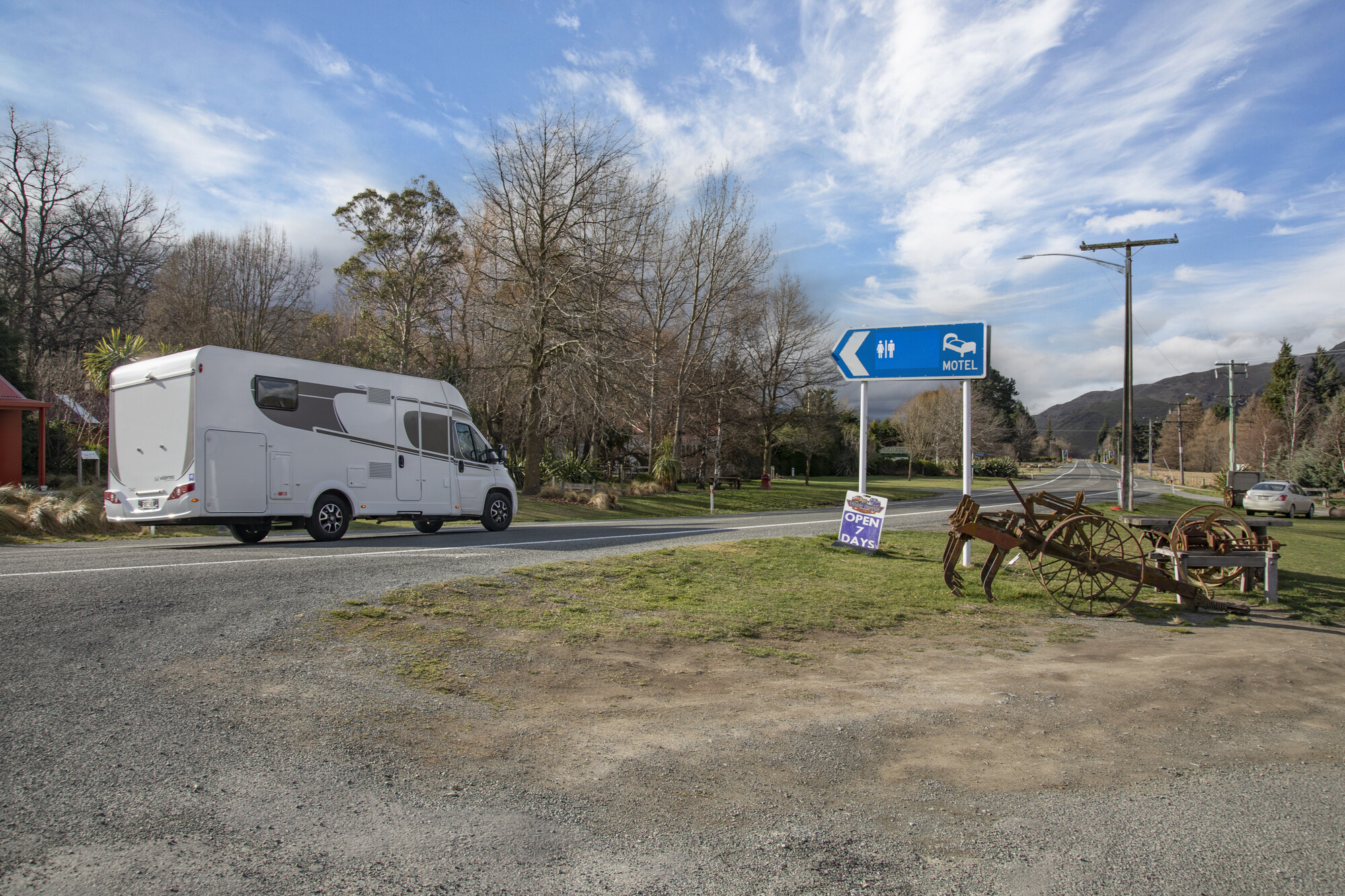
Rental duration
The length of your trip also affects the cost. Longer hire periods typically have lower daily rates for both motorhome and car rental. However, motorhome rentals often have a minimum hire period of around five days. Motorhomes take a lot more time and resources to prepare for rent than a car as they are bigger and have more onboard equipment like fridges and stoves. Preparing a motorhome for rental is more like spring cleaning a house than washing a car. To account for the resource heavy nature of preparing an RV for rent, companies use minimum hire periods. Over holiday periods like Christmas, the minimum hire period may be extended to up to ten days.
Despite the minimum hire period, you can hire for a shorter period. You will just pay the price of a full five (or ten) days of rental. If your touring holiday will be less than five days (or ten in the peak season), car rental may be a more cost effective option than motorhome rental.
Food costs
When it comes to food, you are likely to spend less on an RV holiday than on a car and hotel holiday. You should budget on eating out most nights if you are travelling by car and staying at hotels. When tallying up how much to allow for food, consider whether you prefer to eat at restaurants or are happy to eat take out sometimes.
If you are travelling by RV, you will be cooking for yourself at least some of the time. You should factor in the cost of groceries for the kind of food you like to cook plus the occasional meal out.
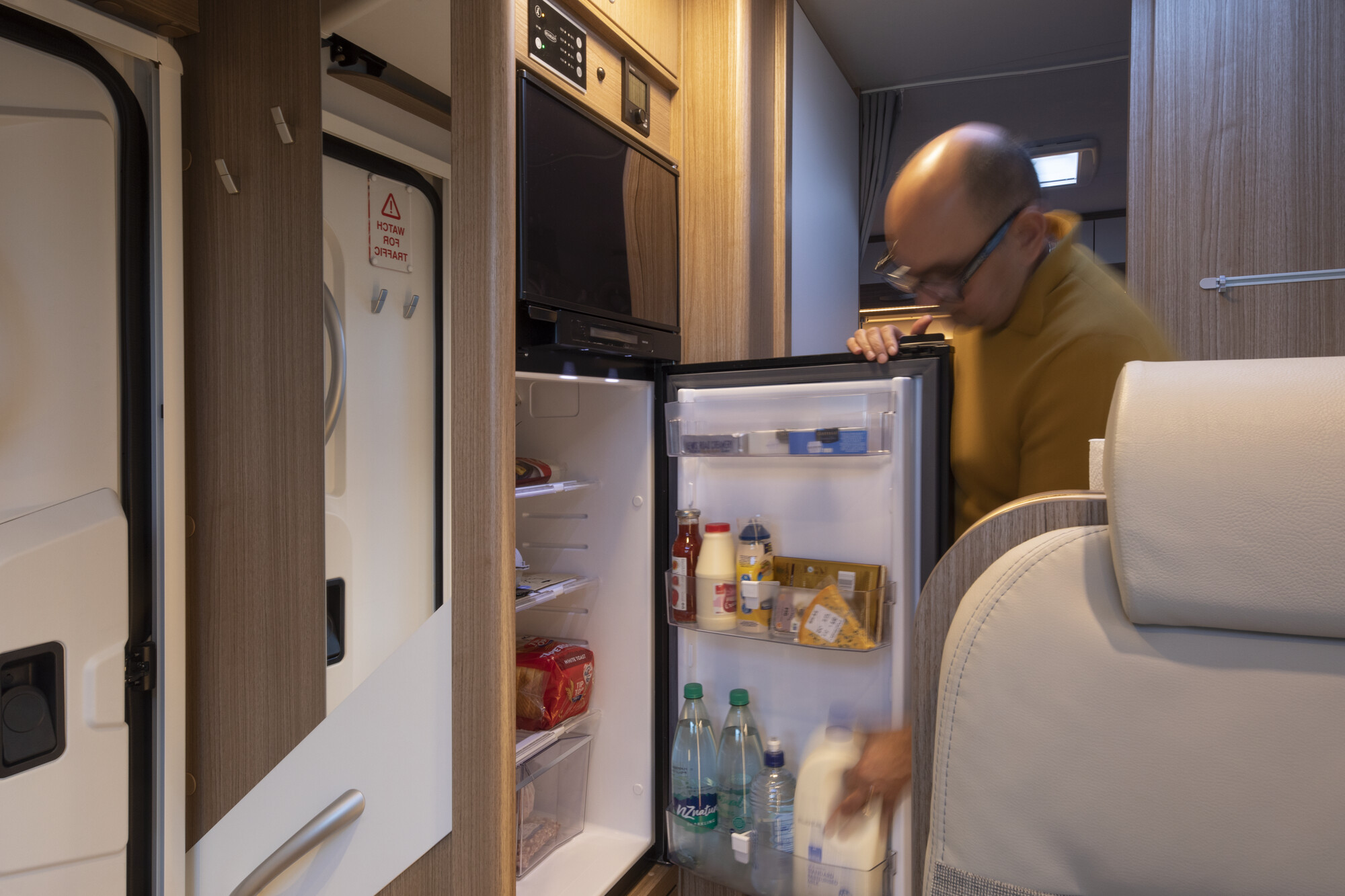
We haven’t drawn any conclusions as to whether a self-drive tour of NZ by rental car or RV is the least expensive as it really comes down to you. We’ve given you the main items you need to include in your budget for both options so you can form your own opinion about what each will likely cost you.
Use the blank table below to get an estimate of how much a car rental and hotel could cost compared with an RV rental based on your travel preferences. Copy and paste the table below into a spreadsheet or document and enter values as you do your research.
New Zealand road trip budget tool
| Car rental & hotel | RV Rental | ||
|---|---|---|---|
|
Transport |
Rental per day |
||
|
Liability reduction option per day |
|||
|
Extras and accessories |
|||
|
Fuel |
|||
|
Road User Charges |
Not applicable | ||
|
Interisland ferry |
|||
|
Accommodation |
Hotel per night |
Not applicable | |
|
Parking per night |
Not applicable | ||
|
Campsite per night |
Not applicable | ||
|
Food |
Restaurant meals |
||
|
Take out meals |
|||
|
Groceries |
|||
|
TOTAL |
So which is better for your New Zealand self-drive holiday? An RV rental or a car rental plus hotel?
RV rentals are a perfect way to explore New Zealand if you’ve got five days or more for your road trip. If you’re planning a short break or plan to stay in one city and explore from there, a rental car and hotel may be the better choice. After that, it really comes down to your personal travel style and preferences.
When should you choose to rent an RV for your road trip?
If you’re the spontaneous type and you enjoy getting off the beaten track and up close to nature, then an RV rental might be for you. RV rentals are best suited to longer duration road trips. They’re perfect for travellers who want to really get to know areas other than the tourist hotspots. If you don’t mind cooking some days and you’re not bothered by the thought of living in close quarters with your travel mates, then you’re a great candidate for RV touring.
Renting a motorhome does not have to mean that you dispense with luxury - read our guide to luxury motorhome hires in New Zealand.
When should you choose to rent a car and stay in hotels for your road trip?
If you’d like the peace of mind of knowing where you’ll be sleeping each night and prefer nightclubs to night owls, a rental car and hotel could be better for you. Hotel stays are ideal if you prefer fully catered holidays and want a bit of space from your travelling companions.
In terms of cost, there are a number of factors that determine whether a self-drive tour of NZ by rental car or RV is the least expensive - it really comes down to your travel style and preferences. We’ve given you the main items you need to include in your budget so you can form your own opinion about what each will likely cost you.
Once you’ve decided whether you’re the spontaneous adventurous type or the urban socialite, it’s time to start looking at rental options.
Check out our guide to Choosing the Right RV Rental in New Zealand.
